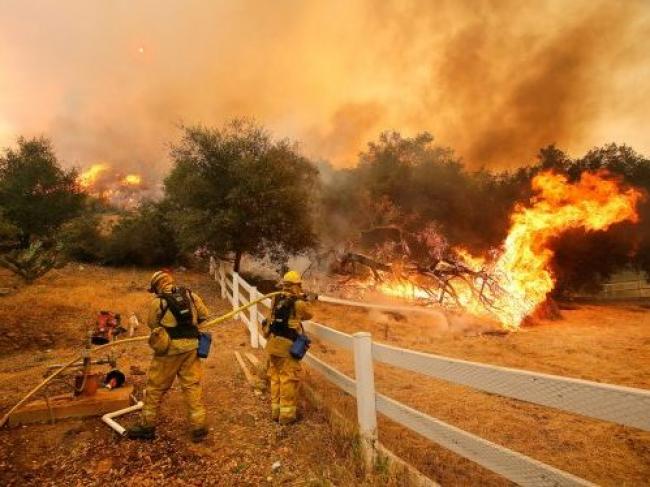Articles Menu

July 29, 2021
In yet another sign that our current systems are poorly equipped for the demands of climate change, California farmers are being left unprotected as insurance companies raise premiums and drop renewals to compensate for the increasing risk of wildfires.
“Nobody knows for sure how many farm owners have lost coverage, but what’s clear is that the trend has sent shock waves through California’s agricultural regions,” writes Grist.
Insurance industry losses from the wildfires that took place in the state in 2017 and 2018 exceeded the total profits reaped over the prior 25 years combined. Since then, insurance companies have been raising premiums and refusing to renew thousands of existing insurance plans. Affected farmers are left to choose between scrambling for coverage under California’s state-run Fair Access to Insurance Requirements (FAIR) plan or risking the fire season with no insurance at all.
What makes that choice difficult, explains Grist, is that FAIR is regarded as an “insurer of last resort”, providing limited and expensive coverage. It was only recent lobbying from the California Farm Bureau that has pushed FAIR to even start including protection for agricultural buildings or equipment like tractors—until now, farmers in the FAIR program were forced to leave potentially hundreds of thousands of dollars’ worth of farm assets with no insurance.
And while the new expanded coverage will help close that gap, it does not go into effect until next year—leaving farmers exposed during what could be the worst fire season in the state’s history.
Grist adds that FAIR will only cover up to US$4 million in damages, less than the value of many vineyards and ranches. The plan also excludes crop damages, despite many vineyards losing entire vintages in recent years from smoke contamination.
The result is a grim prospect for California’s farmers. “If you’re repeatedly hit by wildfire and you’re not insured for it, then most likely you’re going out of business,” said Ryan Klobas, head of the Napa County Farm Bureau. And California plays a large role in the U.S. food economy, meaning that, if a solution isn’t found to keep the state’s farmers in business, the country could see widespread hikes in food prices, along with other impacts.
Even if California does persuade private insurers to offer accessible coverage for farmers who take steps to reduce wildfire risk, it will likely still be out of reach for small operations, said Klobas. Yet expanding the FAIR program to cover more farmers “would create an ultra-expensive risk pool that might prove unsustainable,” Grist adds.
[Top photo: Daria Devyatkina/Flickr]